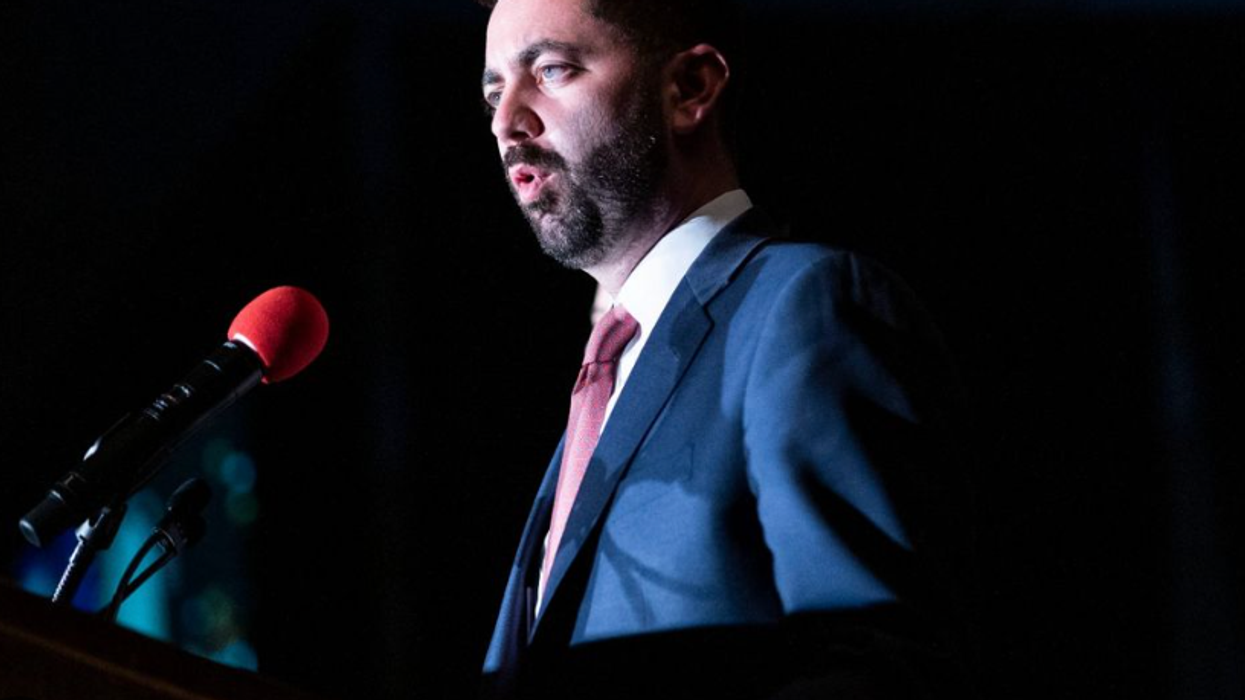'Unfit And Unqualified': GOP Senate Confirms Jeanine Pirro As US Attorney
The far-right former Fox News commentator Jeanine Pirro was confirmed by the U.S. Senate on Saturday night in a strictly party-line vote to become the next U.S. Attorney for the District of Columbia, a position progressive critics and Democratic opponents warn she is deeply unqualified to hold.
Pirro, who has been serving as the acting U.S. Attorney for Washington, D.C. since May, has a long history of spewing far-right conspiracy theories on air and throwing facts to the wind when it comes to lining up behind President Donald Trump. Pirro was a prominent figure when Dominion Voting Systems sued Fox News for defamation over the outlet's coverage of the 2020 election and she was a vocal proponent of Trump's "Big Lie" that the voting was rigged against him.
Christina Harvey, executive director of the pro-democracy group Stand Up America, condemned Pirro's confirmation.
"Republicans have handed the keys to our nation's capital to a Trump loyalist with zero credibility and a track record of unhinged extremism," warned Harvey. "Keanine Pirro isn't a serious prosecutor—she's a partisan attack dog who's made a name for herself by promoting conspiracy theories and threatening to criminally investigate January 6 prosecutors in the office she was just confirmed to oversee. A Fox News producer once called her a 'reckless maniac.'"
"By confirming Pirro," added Harvey, "Senate Republicans made one thing clear: they care more about pleasing Donald Trump than honoring their constitutional duty to advise and consent on presidential nominations. Qualifications, independence, integrity—none of it matters. Just blind loyalty."
The vote in the Senate was 50-45, with every Republican voting for Pirro and every member of the Democratic caucus voting against. Five senators did not cast a vote.
Congressional Democrats voiced their contempt for Pirro both leading up to the vote and following it.
"Pirro should never be a permanent U.S. Attorney," declared Sen. Dick Durbin (D-Ill.), ranking member of the Senate Judiciary Committee, just after the vote was finalized. "She endorsed the firing of January 6 prosecutors. She recklessly spread the Big Lie to the point her *own producers* had to tell her to cool it. Ultimately, she’s a rubber stamp for Donald Trump."
Ahead of the vote, Sen. Richard Blumenthal (D-Conn.) explained his opposition to her confirmation, saying Pirro was "deeply unfit and unqualified" and describing her as "a loyal acolyte and sycophant" of Trump.
"She is not objective, she is not independent," said Blumenthal. "Instead she has made her mark spreading damaging, offensive conspiracy theories."
Last week, Rep. Jeremy Raskin (D-MD), ranking member of the House Judiciary Committee, sent a letter to Senate leadership urging against Pirro's confirmation, calling her a threat to the government's independent judiciary and unfit to run the U.S. Attorney's office in D.C., the largest of its kind in the nation.
"Over the past decade, Ms. Pirro has consistently demonstrated that her loyalty lies with Donald Trump the person, not with the Constitution or the rule of law," said Raskin in a letter addressed to Republican Senate Majority Leader John Thune and Democratic Minority Leader Chuck Schumer.
"Her blind loyalty to Donald Trump at the exclusion of other principles, her embarrassing support of the 'big lie' that the 2020 election was rigged in the face of all evidence to the contrary and 60 federal and state court decisions rejecting such claims, her unswerving defense of convicted January 6th rioters, and her incendiary rhetoric that urges President Trump to seek retribution against his alleged enemies," continued Raskin, "all make it clear that she lacks the intellectual honesty, personal principles, temperament, integrity, and fundamental constitutional fidelity required to lead this important office."
Reprinted with permission from Alternet.











